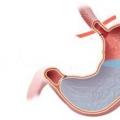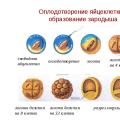On September 10, 2017, elections of various levels were held in 82 regions of Russia. Violations were noted at many polling stations, most of all in Moscow, where candidates for municipal deputies were elected.
The information summarized below was mainly received through the Violations Maps hotline (except as otherwise noted). The data is being replenished.
Media exclusion
V Perm, where the election of the governor of the region is being held, the chairman of the election commission No. 2841 forbade the media to take photos and videos. The ban on filming was also carried out in relation to the publication "Lightning" in Volzhsk(Mari El, early elections of the head of the republic) at polling station No. 134.
V Gatchina(Leningrad region), where by-elections of a State Duma deputy are being held, a freelance media worker was forbidden to be at the polling station.
Inadmissibility of observers
Members of the commissions in the right of an advisory vote (PSG) were not allowed to polling stations in Birsk and Tuymazakh(Bashkortostan, municipal elections), Sochi(Krasnodar region, elections of deputies of the legislative assembly of the region), Chekhov(Moscow region, elections of deputies of the City Council). Tuimazov complained that PSG and observers throughout the city were not allowed to film and were suspended from work at polling stations. The city court is closed for the second day, so there is no way to file statement of claim, the hotline of the Republican Electoral Commission is not responding.
In Moscow, members of the commissions with the right to consultative vote were not allowed to the polling stations before the start of voting in the districts Tsaritsyno, Presnensky and Lublino. Near Veshnyaki the observer was not allowed into the TEC.
Prohibitions on movement and filming, restrictions on work
V Penza, where the elections of deputies of the regional legislative assembly are being held, the commission forbade the movement of observers around the premises, did not allow filming. One of the observers, United Russia candidate Sergei Yegorov, tried to snatch the phone.
In the village Obukhovskaya Kamyshlovskiy district of the Sverdlovsk region (elections of the governor and deputies of the legislature of the municipality), a member of the commission with an advisory vote, Sergei Demin, was forbidden to get acquainted with the list of voters.
V village Opochka(Pskov region, elections of deputies of the district assembly and by-elections of the deputy of the legislature of the urban settlement) and in Krasnodar members of the commission with an advisory vote were banned from filming. In Krasnodar, PSGs were also restricted from accessing the voter lists.
V Moscow region Otradnoe Natalya Pakhomova, a candidate and at the same time a member of the territorial election commission (TEC) with the right to consultative vote, was forbidden by the chairman of the precinct election commission (PEC) to move around the polling station, forcing her to sit behind a column that restricted the view.
Near Lianozovo the chairman of PEC 604 refused to provide the PSG with a register of voters who voted outside the polling station. In PEC 376, a member of the commission with an advisory vote was not allowed to film.
Near Marina Grove PSG refused to accept applications and tried to remove them from the polling station.
Interfax, referring to the head of the Moscow branch of the Yabloko party, Sergei Mitrokhin, reports that the chairman of the PEC in Tverskoy area did not let observers in, forbade filming, "tried to register incomprehensible people without passports."
 At the site in Norilsk. Photo: Alexander Rumyantsev
At the site in Norilsk. Photo: Alexander Rumyantsev
Threats
V Krasnodar an advisory member of the commission was threatened with "administrative action" when he filed a complaint about the restriction of work while filming. The chairman of the commission, deputy and voting members of the commission, as well as observers, forced him to remove the video.
in the Moscow region Filevsky Park members of the PEC forbade the candidate for municipal deputies Veronika Bykadarova to film video. She was told: "If you do not remove the video camera after 15 minutes, then the police will remove it."
Coercion to vote
In the town Nazarovo(Krasnoyarsk Territory, elections to deputies of the City Council), according to data received at hotline"Map of violations", the director of school number 14 called teachers and forced them to vote for "United Russia".
Moscow (Pervomaisky): Teachers were forced to vote. The head of the administration Khoperskaya Olga Vladimirovna came to the school. She brought envelopes with ballots, everyone ticked the boxes and returned the documents to Khoperskaya.
V Penza voters were brought by bus from the factory. in the Moscow region East Izmailovo the social worker drove pensioners to the polling station, gave them memos with campaigning for United Russia, after which he called someone and reported by name who voted. Near Ochakovo-Matveevskoe voters were brought to the polling station from a nearby home for the disabled.
Delivery was also recorded in Kuzmolovsky urban settlement Leningrad region(elections of deputies of the municipality), reports “Zaks. Ru" with reference to the "Observers of Petersburg".
V Cherepovets(Vologda region, elections of deputies of the city duma) at polling station No. 937, there were only three people in the register of voters voting at home, but members of the traveling group took 50 ballots with them and returned with 17 filled out.
city dweller Sasovo Ryazan region (gubernatorial elections) reported to the hotline "Cards of Violations", that she works in a budgetary organization and the leadership forces her to vote at the polling station before a certain time and report verbally. In the village Vnukovskoe(New Moscow) civil servant voter the authorities, according to her, force them to submit confirmation that she took part in the elections.
in the Moscow region Filevsky Park during voting at home, a social worker turned up in one of the apartments, after whose campaigning the voter put marks on the ballot in accordance with the names of the candidates on the United Russia pocket calendar, which the social worker had previously brought. Agitation of social workers was also recorded in the district Orekhovo-Borisovo North.
in the Moscow region Lublino the director of Psychiatric Hospital No. 13 is running for deputies, and 270 patients have been entered in the mobile voting register.
According to OVD-Info, patients at Moscow's Bauman Hospital No. 29 were asked to vote, despite the fact that the hospital is not in the area where they are registered.
After the vote
According to data received by the Maps of Violations hotline, they tried to prevent observers in Moscow districts from counting votes at polling stations Dorogomilovo and Tagansky.Filming is prohibited in the districts of Maryino, Chertanovo Central, Krylatskoye and Fili-Davydkovo. In the districts of Lomonovsky and Perovo, on the contrary, observers are not allowed to leave the polling stations until the end of the count.
A single voting day is traditionally held in Russia on the second Sunday of September. This time, elections at various levels will cover 82 regions; they will be absent only in Ingushetia, the Magadan Region and St. Petersburg. 46 million Russians will be able to come to the polls and vote for a party or a specific candidate next Sunday.
The largest elections - governors and deputies of regional parliaments - will be held in 20 regions. At the same time, in two of them - Udmurtia and the Saratov region - residents will simultaneously elect both the head and deputies.
In total, on September 10, about six thousand elections of various levels and local referendums will be held.
Governors will be elected by residents of 16 regions - Buryatia, Karelia, Mari El, Mordovia, Udmurtia, Perm Territory, Belgorod, Kaliningrad, Kirov, Novgorod, Ryazan, Saratov, Sverdlovsk, Tomsk, Yaroslavl regions and Sevastopol (gubernatorial elections will be held in the hero city for the first time).
In all 16 regions, current heads and interim heads nominated by United Russia are running for the post of head. And their rivals are candidates nominated by the Communist Party of the Russian Federation, A Just Russia, the Liberal Democratic Party and a number of other parties. On average, 4-5 people apply for one post of governor.
Elections of regional parliaments will be held in North Ossetia - Alania, Udmurtia, Krasnodar Territory, Penza, Saratov and Sakhalin regions. Both parties and single-mandate candidates compete for mandates (the Republic of North Ossetia-Alania is an exception, where parliamentary elections are held only on party lists). In terms of the number of participants in this race, the Penza and Sakhalin regions are leading - 10 parties are included in the ballots.
In addition, two new deputies are to be elected. State Duma. By-elections to the State Duma are held in two single-member constituencies: Kingisepp in the Leningrad Region (Sergei Naryshkin, who won there last fall, headed the Foreign Intelligence Service shortly after the elections) and in Bryansk, Bryansk Region (Vladimir Zhutenkov, who was elected there, surrendered his mandate ahead of schedule).
More than 1,500 municipal deputies will be elected in Moscow. Elections to local councils of deputies will be held in 124 of the 125 municipal districts of the capital (except Shchukino, where elections were held in 2016), as well as in the urban district of Troitsk. Both parliamentary and non-parliamentary political forces take part in the capital elections. The competition is on average 5 people per seat. According to the estimates of the Civil Society Development Foundation, the elections in the capital will become the most competitive municipal elections in the last 5 years.
Let's add that quickly determine your polling station, as well as get another useful information information about the elections is available at the information and reference center of the CEC at 8-800-301-12-09 (toll-free within Russia). "You can apply here for all issues related to the electoral process," says CEC head Ella Pamfilova. "This is one of those innovations that we are testing in the autumn election campaign on the eve of the presidential elections."
First person
The head of the Central Election Commission, Ella Pamfilova, promised to harshly cancel the election results in those polling stations where violations would be recorded on voting day. "Do not rush to sum up, at the appointed time, please consider all the complaints received, if necessary, recount, if necessary, cancel," Pamfilova addressed the regional election commissions. "We will be very tough to cancel where there are violations," she said. At the same time, the head of the CEC noted that there were fewer complaints about the use of administrative resources. "As for preventing the use of administrative resources, now we see that there are much fewer such complaints - already in this campaign, I hope that we will continue to keep this situation under strict control," Pamfilova said.
An exception is, perhaps, the city of St. Petersburg, in which annually in the summer, at the end of June, a large-scale holiday-festival of school graduates "" is held. Based on the convenience of holding festive events, the date of the holiday is assigned to the weekend (usually Saturday) closest to the longest white night.
When is the 2020 High School Alumni Reunion Evening?
In 2020, the evening of the meeting of school graduates will be held February 1, 2020 .
The evening of the reunion is also sometimes referred to as Homecoming Day, since the activities begin "before dawn", during the daytime. But gatherings with former school friends invariably drag on and end in the evening, and sometimes late at night.
What years (issues) are found in schools in 2020:
According to tradition, graduates gather for the first evening of the meeting in a year after high school, and beyond on anniversaries, multiples of five (every 5 years).
In 2020 it will be:
* 2019 release - 1 year.
* 2015 release - 5 years.
* 2010 release - 10 years.
* 2005 release - 15 years.
* 2000 issue - 20 years.
* 1995 release - 25 years.
* 1990 issue - 30 years.
* 1985 issue - 35 years.
* 1980 issue - 40 years.
* 1975 issue - 45 years.
* 1970 issue - 50 years.
When university graduates gather for reunion evenings:
Unlike former classmates, former classmates hold their meetings in the summer. There is no single date for meetings of university graduates, so each higher education institution chooses it independently.
In 2020, this will be one of the Saturdays from June to September.
How are the meetings going?
On the first Saturday of February (in 2020 - February 1), if you graduated from school last year, or your graduation is anniversary (i.e., a multiple of five years have passed since graduation), you must come to your home school in person.
First you need to know the time of the beginning of the festive events. Usually, an announcement with the date and time of the start of the official part is posted on the official website educational institution. Information is also disseminated through social networks in which former classmates communicate.
The "heroes of the occasion" are gathered in the assembly hall, where a festive event is held for them. Pupils who have not finished school yet speak to the audience: they read poetry, sing songs, play funny scenes "a la Yeralash". Congratulatory speeches are made by the director and teachers. At the end of the official part, former students are asked to come up on stage and say a few words about themselves and their favorite school.
After the solemn part is over, the celebration moves to the classrooms, where classmates gather separately together with their former class teachers. Not without gifts - it is customary to chip in in advance and give the class teacher flowers and a symbolic (and sometimes valuable) gift. It would not be superfluous to thank him for the work and the years spent on you.
Homecoming evening is a time of memories, so be sure to bring school photos or photo albums with you to help you remember the best moments from school life.
There are schools that are loyal to the long gatherings of former students in the classroom with food and liquor. However, you should not abuse such kindness, especially since it can be significantly limited in time. It is best to continue the celebration in a cafe or restaurant. The main thing is to take care of booking a hall or a table of the required size in advance, since there are no empty seats in such establishments on the date of the evening meetings.
MOSCOW, May 15. /TASS/. The regional elections, which will be held on the single voting day on September 10, 2017, will be held according to the updated legislation. This was announced by the Deputy Chairman of the CEC of the Russian Federation Nikolay Bulaev.
In March, members of the Federation Council Andrei Klishas and Anatoly Shirokov submitted to the State Duma a package of amendments to the electoral legislation, which, in particular, provides for the abolition of absentee ballots, strengthens the possibility of video surveillance and Internet broadcasts from polling stations, facilitates the work of observers at the presidential elections, and allows for the disaggregation of voting plots and toughens liability for falsification. The amendments were adopted in the first reading on 12 April.
"It is quite possible that all the elections that will be held in the regions (elections of legislative assemblies and governors) will be held under the new law, we must be prepared for this. September, a single voting day, the elections will be held under the new law," Bulaev said. at a meeting of the CEC working group on legislative innovations.
The deputy chairman of the commission noted that the September elections will be an "important test" on the eve of the presidential elections in March 2018. "I think those more than 20 campaigns that will take place in the regions will allow us to see both the positive aspects of the new law and the shortcomings that may arise in organizing the activities of election commissions," Bulaev concluded.
About the September 10 elections
On a single voting day, which falls on September 10 in 2017, elections of deputies to legislative assemblies of six regions are scheduled, and elections of heads of 17 constituent entities of the Russian Federation will also be held (in 16 - nationwide). In addition, deputies of city dumas of administrative centers in 11 regions will be elected.
In addition, by-elections of a State Duma deputy in the Kingisepp single-mandate district in the Leningrad Region are coming. In this district, the Duma elections in 2016 were won by the speaker of the State Duma of the previous convocation, Sergei Naryshkin, but he was appointed head of the Foreign Intelligence Service and the mandate remained vacant.
These elections will be the last before the presidential election campaign in the Russian Federation. The presidential elections should take place in March 2018, and the campaign should start at the end of this year.
Very little time remains before the start of the Single Voting Day, which in 2017 will fall on September 10th. Virtually all over Russia, local elections will be held, which are very important from a political point of view for determining the future of our country.
Currently, in a huge number of regions of the Russian Federation, the election campaign is coming to an end. Various candidates and parties are trying to lure voters to their side. Many Russians are asking the same question: who do we choose on this day according to the list of candidates? According to the tradition that has developed over many years, voters will have to choose between candidates from the following parties: United Russia, the Communist Party of the Russian Federation, the Liberal Democratic Party and Fair Russia.
The CEC was told that all candidates for governors and ZSK regions have already been registered. The Electoral Commission has launched a "hot line" to clarify the work and provide additional information - tel. 8-800-301-12-09.
This year, the work of polling stations and the procedure for elections have been slightly changed. In particular, absentee ballots have been abolished, which allows a citizen to vote outside their region by simply writing an appropriate application at the polling station at the place of residence.
United Russia has traditionally put forward the largest number of candidates in the elections (1,477 people - 105 more than in 2008), however, in percentage terms, the share of candidates from the party in power of the total number of registered candidates fell to 19% - from 42% in 2008.
Elections of deputies of municipal assemblies will be held in Moscow on September 10. In total, almost 1,500 mandates will be distributed. The nomination of candidates for mayor of Moscow in 2018 will depend on the support of the deputies elected in 2017 - it depends on them whether the candidates will be able to pass the municipal filter.
Governor of the Belgorod Region;
Head of the Republic of Buryatia;
Deputies to the Barnaul City Duma;
Governor of the Perm Territory;
Governor of the Kaliningrad region;
Head of the Republic of Karelia;
Governor of the Kirov region;
Deputies to the Legislative Assembly of the Krasnodar Territory;
Head of the Republic of Mari El;
Head of the Republic of Mordovia;
Governor of the Novgorod region;
Deputies to the Legislative Assembly of the Penza region;
Governor of the Ryazan region;
Elections to the Saratov Regional Duma;
Governor of the Saratov region;
Deputies to the Sakhalin Regional Duma;
Governor of the Sverdlovsk Region;
Governor of Sevastopol;
Elections to the Parliament of the Republic of North Ossetia - Alania;
Governor of the Tomsk region;
Elections to the State Council of the Udmurt Republic;
Head of the Udmurt Republic;
Governor of the Yaroslavl region.




